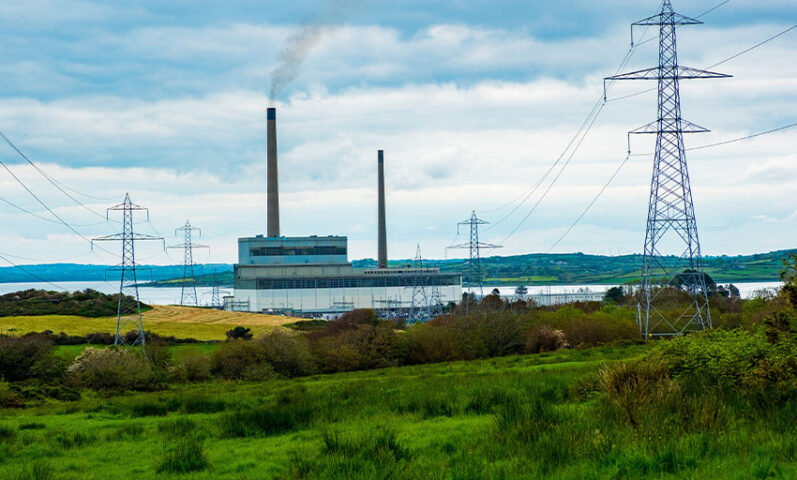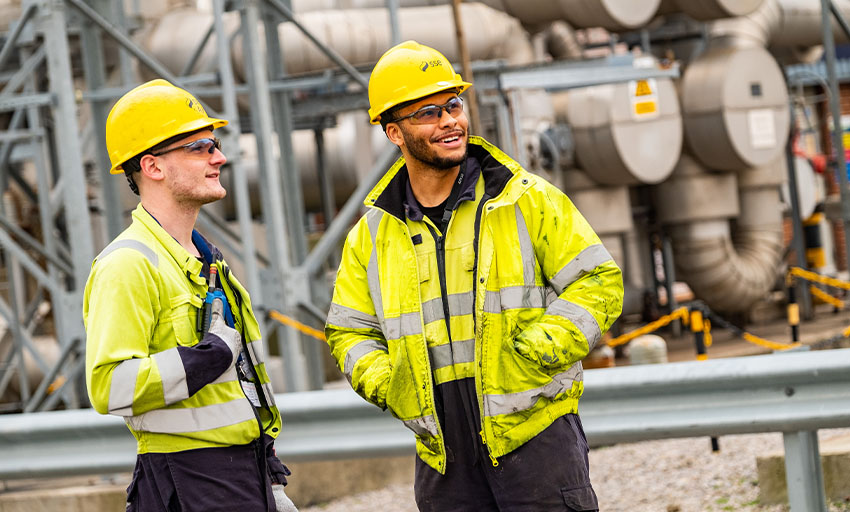
Researching Ireland’s cleaner energy future with green hydrogen
15th December 2023
Reforming electricity markets: A global perspective
15th December 2023Low-carbon flexible power: The missing piece of Ireland’s net zero jigsaw

SSE Thermal is developing a new power station running on biofuels at its Tarbert site in County Kerry.
As Ireland navigates to net zero, low-carbon flexible thermal will be essential in keeping the lights on, writes Catherine Raw, Managing Director of SSE Thermal.
 We are now one month on from the end of COP28, where much of the debate and discussion was focused on the need to phase out unabated fossil fuels. I was privileged to be in SSE’s delegation to Dubai and see first-hand the effort being exerted in these crucial climate talks with clear, positive action being taken by countries around the globe.
We are now one month on from the end of COP28, where much of the debate and discussion was focused on the need to phase out unabated fossil fuels. I was privileged to be in SSE’s delegation to Dubai and see first-hand the effort being exerted in these crucial climate talks with clear, positive action being taken by countries around the globe.
There is global consensus that renewables will do the heavy lifting when it comes to reaching net zero. That is certainly the case in Ireland, where ambitious climate targets have led to significant success in renewables rollout to date. But while renewables will rightly form the backbone of the electricity system in Ireland, we cannot ignore the critical role of flexible generation.
Today, flexible power is crucial in keeping the lights on across Ireland when the wind does not blow and the sun does not shine. With increasing intermittency on the system, the importance of flexibility will only grow and at SSE Thermal, we are on a mission to ensure that flexible power is low-carbon in its own right.
In doing so, we can keep the lights on and the electricity grid stable by responding fast and flexibly to system need, ramping up and down quickly to make sure that demand for electricity is met. That will help with security of supply concerns, something which is particularly acute in Ireland.
Within the last few months, the Government has published its Energy Security Strategy, a welcome step to tackling some of the key challenges the country faces. Within that strategy is clear recognition of the need to decarbonise ‘non-renewable’ components of the power system coupled with a stated aim of building 2GW of new flexible generation capacity.
At SSE Thermal, we are proud to own and operate multiple flexible power stations including Great Island in County Wexford which is Ireland’s newest and most-efficient gas-fired power station. As a company, we are laser focused on bringing forward the next generation of flexible power stations. In Britain, that has led us to develop new assets which would incorporate carbon capture or hydrogen technology. Ireland, however, is at an earlier stage of its low-carbon journey and that has led us to pursue a different approach.
Specifically, we are developing two power stations which would run on 100 per cent sustainable biofuels. One is being developed at Platin, County Meath for 170MW while the other 350MW plant would be located at our historic Tarbert site in County Kerry. By using hydrotreated vegetable oil (HVO), these new assets will provide a lower carbon alternative to traditional fossil fuels and crucially, both plants would be capable of converting to hydrogen in the future, once appropriate policy mechanisms and infrastructure are in place.
In April 2023, we secured 10-year capacity agreements for both Tarbert and Platin projects, highlighting the role this technology can play in meeting Ireland’s acute security of supply challenge and net zero ambition.
While these are important bridging projects, it is key that Ireland moves quickly towards a hydrogen future. That is because 100 per cent hydrogen-fuelled plants would produce zero carbon emissions at the point of combustion, something which would help propel Ireland towards its net zero goals.
“If we are to meet our net zero ambition, we cannot wait until the 2040s to deploy low-carbon flexible power.”
That is why the publication of a National Hydrogen Strategy was so encouraging and represented an important milestone in the sector’s development. Now, we need to build on momentum and explore how policy can support the entire value chain from production to storage to offtake, including industry, transport and power generation. In particular, there is a need to actively progress enduring business models to support the emerging hydrogen economy.
We believe Ireland should also consider the potential of carbon capture, something which the Government has begun to explore. We believe carbon capture has a role to play in Ireland, with carbon dioxide emissions from gas power generation being captured and safely stored instead of released into the atmosphere. As a result, we support the early completion of a feasibility study on carbon capture and storage and look forward to sharing our view on how it could be deployed in Ireland, building on our learnings from Britain where we are currently the only company with consent for a power CCS project.
Together, carbon capture and hydrogen can make a major contribution to the Ireland’s net zero targets. If we are to meet our net zero ambition, we cannot wait until the 2040s to deploy low-carbon flexible power. We need to move quickly and at the very minimum any new generation plant must be capable of being decarbonised, avoiding carbon lock-in. It is time to seize the low-carbon moment and ensure policies are in place to enable build-out of the next generation of decarbonised flexible thermal generation.

W: www.ssethermal.com

